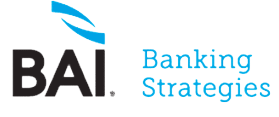This is a reposting of the piece “Q&A Break with Sam Graziano, CEO of Fundation,” published by Politico Pro / Politico LLC.
Fundation is one of a growing number of online small-business lenders that have popped up in the last several years. Company CEO Sam Graziano took a few minutes out of the fintech conference to chat about the company’s hopes and concerns on government policy toward small-business lending.
This transcript has been edited for length and clarity.
You’ve mentioned your concerns about regulating small-business loans like consumer loans.
My main concern would just be if there ends up with state-by-state rulemaking that is too prescriptive. An example would be, there are some people that feel different ways about ability to repay, the concept of ability to repay [in small business lending]. And while on the surface that seems like, “yeah, the customer should be able to pay,” when you sort of peel the onion back a layer and sort of look at that issue it would actually be very dangerous.
The businesses that need capital the most tend to be younger, higher growth businesses. And those tend to be the businesses where expenses come before revenue. So you can look at that on the surface and say that business doesn’t have the ability to repay, but in reality they are a business that needs capital the most and is in a position to sort of do the most for society.
And so while I think some rules and regulations could be well-intentioned, I am worried that they could end up having the wrong effect. So that would be my concern if we end up with a state-by-state regulatory regime that could be too prescriptive, more onerous for small business finance companies.
So shifting that to the OCC fintech charter, what was your reaction to that proposal, and moving forward what are things you’re looking at in terms of your decision as to whether to go for a charter?
I think we need to see it play out a little more, to see a little bit more of the substance behind what does it actually mean to have the charter. What areas that exist within bank regulation today are going to be applicable to a company that has this sort of special charter?
So something like capital standards.
A perfect example? Should capital standards apply to a business like ours and what is the risk to the economy at large if a business like ours goes down? Our whole industry is still tiny in the grand scheme of the capital markets, so it’s those types of things in particular.
The Community Reinvestment Act is another thing. For us, the CRA’s probably not an issue at all, the vast majority of our loans are less than a million dollars for companies with less than a million dollars in sales, and we’re like the poster child for CRA-style lending.
Nonetheless, there are things that just need to be a little bit clearer. I think the benefits are certainly allowing institutions like ours a safe harbor, if you will, out there. If you have this charter and you operate a certain way, you can do your business without having to worry about any type of state-by-state law or type of regime.
What’s your policy wish list for this administration?
I think further fleshing out the OCC charter is certainly a big one. Another that comes to mind, the different regulators that supervise the banking industry in essentially similar ways, but they all have their own take—the Fed, the OCC, the FDIC—you’re talking about a number of different regulatory bodies that are all essentially regulating the same things, I think jointly having very clear guidance of, when is it ok for you, Mr. Bank, to partner with a fintech, and what exactly needs to be in place for that to happen? What exactly does that fintech need to be doing to make that OK?
Third-party vendor guidance.
There’s some guidance out there. The FDIC has some, the Fed has some, but I think one comprehensive document that is signed off on by each of those regulatory agencies to say we’re comfortable with fintech partnerships when they look and smell like this, I think that would be great.
Several trade associations for online lending have popped up recently, do you think there’s going to be consolidation on that front?
I think there has to be. I think, again, there’s a lot of good intentions out there. They’ve been in a little bit of … a chess match with some of these associations and coalitions of different philosophies and different things like that. Generally speaking, pretty well-aligned but it’s sort of been a messy process to get people to come together.
Whatever the subtle or not-so-subtle differences are between one group or another, I think not sorting that out is more dangerous than not having a unified voice to be able to say to government, “Look, here’s what we’re doing well for society, here’s our concerns” and to talk about what those clear issues are. But if they’re getting conflicting points of view from different groups, or different groups are saying different things, it could sort of start to muddy the waters a bit.
And for an industry that is in the grand scheme of things not that big — we look at it and feel that it’s big.
You’ve attracted a lot of attention.
We’ve attracted a lot of attention for an industry that is sort of a rounding error in the scheme of the banking system. And I think it’s because it’s an early manifestation of what digital technologies can do to the lending markets in terms of the type of experience they can offer consumers and small businesses, the number of consumers and small businesses that can be served more effectively. So it’s almost like an incubation ground for the banking industry at large so it deserves a lot of attention, but nonetheless the industry is small. We need to be careful of and mindful of that to some degree because I think there’s probably only so much attention we’re going to get from the people making decisions in Washington.
More News
Visa boasts of fintech Fast Track success
May 14, 2020
New York City Credit Program Aims to Help Female Entrepreneurs
November 14, 2019
Import/Export SMBs Introduced to Fintech Lending Options
August 7, 2019
Online Loans You Can Take To The Bank
April 23, 2019
Case study: Citizens Bank – fintech friendly
February 19, 2019
2018 Best of FinXTech Awards Finalists Announced
March 29, 2018
Citizens Digitizes SMB Lending Process With Fundation
November 6, 2017
Park Bank Announces Expansion of Small Business Lending Efforts
November 2, 2017
Defining, Adopting and Executing on Fintech
September 5, 2017
Fundation CEO Talks Partnership Strategy
August 4, 2017
Fundation works with, not in place of, banks
April 3, 2017
Fundation Secures Credit Facility from MidCap Financial
March 21, 2017
Where the money is: A small business lending gap
March 3, 2017
Fintech Ideas Festival Rapid Fire Emerging Tech Panel
January 17, 2017
Citizens Bank Next To Take The Leap With Alt-Lender
December 21, 2016
Regions Eyes Small Business Loans in Latest Tech Deal
September 22, 2016
Is The Future Of Alt-Lending Playing Well With Others?
August 30, 2016
Best Alternative Small Business Loans 2016
May 27, 2016
Frenemies In the Marketplace
April 29, 2016
Bigger Bang In Small Biz
April 1, 2016
How To Get A Small Business Loan (Webinar)
March 29, 2016
Fundation Expands Small Business Lending
March 4, 2016
Top 25 Financial Blogs for Small Businesses – 2016
February 22, 2016
CEO Sam Graziano on MSNBC’s Your Business
February 18, 2016
Bank Branches Are Still Good for at Least One Thing
February 17, 2016
Fundation Named Finalist In 2016 Stevie® Awards
February 12, 2016
A “Meaningful” Platform-Bank Partnership?
January 6, 2016
Late on a Loan Payment? How To Do Damage Control
October 21, 2015
Regions Inks Unique Deal to Tap Booming Fintech Industry
October 13, 2015
Best Alternative Small Business Loans – 2015
October 6, 2015
Fintech strikes again; Regions partners with start-up
October 5, 2015
Investing in Alternative Lending?
May 1, 2015














